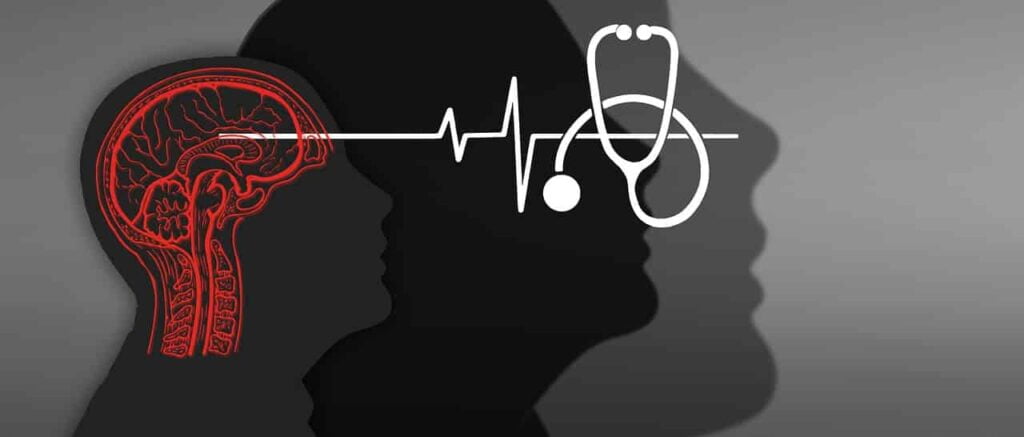Mental clarity is the state of being mentally focused and free from confusion, allowing for efficient and effective thinking. It’s about having a sharp mind and the ability to think clearly and quickly. Brain health is closely linked to mindfulness; maintaining a healthy brain ensures optimal cognitive function. Mindfulness, the practice of being present and fully engaged in the moment, is a powerful tool for achieving mental clarity.
Whether you’re dealing with brain fog, struggling with memory, or simply looking to enhance your mental performance, this guide provides actionable tips and insights to help you achieve mental fitness.
Balanced Nutrition
Eat a Brain-Boosting Diet
A well-balanced diet is fundamental for brain health and mental clarity. Here are some key dietary components to focus on:
- Omega-3 Fatty Acids: Found in fatty fish like salmon and mackerel, as well as flaxseeds and walnuts, omega-3s are crucial for brain function.
- Antioxidants: Berries, dark chocolate, and green leafy vegetables are rich in antioxidants that protect brain cells from damage.
- Whole Grains: Foods like oats, brown rice, and whole-grain bread provide a steady supply of glucose, which fuels the brain.
- Vitamins and Minerals: Vitamins such as B6, B12, and folic acid, along with minerals like magnesium and zinc, are vital for cognitive function.
Hydration Matters
Dehydration can impair concentration and cognitive function. Ensure you’re drinking enough water throughout the day to stay hydrated.
Exercise Routine
Physical Activity for Brain Power
Regular physical exercise is a cornerstone of brain health. Exercise increases blood flow to the brain and promotes the growth of new neurons. Here are some effective types of exercise:
- Aerobic Exercise: Exercises that strengthen the heart and brain include swimming, cycling, and jogging.
- Strength Training: Lifting weights or using resistance bands can boost cognitive performance by promoting neurogenesis.
- Flexibility and Balance: Yoga and Pilates not only improve physical flexibility but also enhance mental focus and reduce stress.
Incorporate Movement into Your Day
Even small amounts of physical activity, such as taking the stairs instead of the elevator or going for a walk during lunch breaks, can significantly benefit your brain health.
Sleep Hygiene
importance of Quality Sleep
Sleep is essential for consolidating memories and clearing out toxins that accumulate in the brain. Poor sleep can lead to brain fog and decreased mental clarity. Here are some tips for better sleep:
- Stick to a Schedule: Go to bed and wake up at the same time every day.
- Create a Relaxing Bedtime Routine: Activities like reading, taking a warm bath, or practicing meditation can signal your body that it’s time to wind down.
- Limit Exposure to Screens: The blue light emitted by phones and computers can interfere with your sleep cycle. Try to avoid screens at least an hour before bed.
Optimize Your Sleep Environment
- Comfortable Mattress and Pillows: Ensure your bedding supports restful sleep.
- Dark and Quiet Room: Use blackout curtains and earplugs if necessary.
- Cool Temperature: A cooler room temperature can improve sleep quality.
Mindfulness Practices
Mindfulness is the practice of being fully present and engaged in the current moment. It has been shown to reduce stress, improve focus, and enhance overall mental health. Here are some mindfulness practices to incorporate into your daily routine:
- Meditation: Even a few minutes of meditation each day can significantly improve mental clarity and emotional well-being.
- Deep Breathing Exercises: Mind-calming and anxiety-lowering techniques include diaphragmatic breathing.
- Mindful Eating: To improve digestion and the eating experience, pay attention to the flavor, texture, and scent of your food.
- Mindful Movement: Physical exercise and mindfulness are combined in practices like yoga and tai chi, which enhance mental and physical well-being.
Mental Clarity Supplements
Boosting Your Brain with Supplements
Certain supplements can support brain health and improve mental clarity. Here are some popular ones:
- Fish Oil: Rich in omega-3 fatty acids, fish oil supplements support cognitive function and reduce brain inflammation.
- Ginkgo Biloba: This herbal supplement is believed to improve blood flow to the brain and enhance cognitive performance.
- Bacopa Monnieri: is an herb used in traditional medicine that may improve memory and cognitive function.
- Rhodiola Rosea: Rhodiola rosea, which is well-known for its adaptogenic qualities, can lessen fatigue and improve brain health.
Mental Clarity Vitamins
- Vitamin D: Essential for brain, a deficiency in vitamin D is linked to cognitive impairment.
- B Vitamins: Vitamins B6, B12, and folic acid are crucial for maintaining brain health and preventing cognitive decline.
- Vitamin E: is an antioxidant that protects brain cells from oxidative stress.
Stress Reduction
Managing Stress for Better Mental Clarity
Chronic stress can impair cognitive function and lead to mental fatigue. Here are some effective stress management techniques:
- Mindfulness and Meditation: Regular practice can reduce stress levels and improve brain health.
- Physical Activity: Exercise is a powerful stress reliever.
- Time Management: Prioritize tasks and break them into manageable chunks to reduce overwhelm.
- Hobbies and Leisure Activities: Engage in activities you enjoy to relax and recharge.
Relaxation Techniques
- Progressive Muscle Relaxation: Tense and then slowly release each muscle group in your body.
- Visualization: Imagine a peaceful scene to promote relaxation.
- Listening to Music: Calming music can reduce stress and enhance mood.
Healthy Habits
Developing a Routine for Mental Clarity
Including wholesome routines in your everyday life can enhance Mindfulness and promote brain health. Here are some tips:
- Consistent Routine: Having a structured daily routine helps maintain stability and reduce stress.
- Regular Breaks: Taking breaks during work or study sessions prevents mental fatigue.
- Positive Thinking: Cultivating a positive mindset can enhance cognitive function and overall well-being.
- Learning New Skills: Engaging in new and challenging activities stimulates the brain and promotes neuroplasticity.
Digital Detox
The Impact of Digital Overload
Constant exposure to digital devices can lead to mental fatigue and decreased productivity. Here are some strategies for a digital detox:
- Set Boundaries: Limit screen time and establish tech-free zones in your home.
- Scheduled Breaks: Take regular breaks from screens to rest your eyes and mind.
- Outdoor Activities: Spend time in nature to refresh your mind and reduce stress.
- Mindful Technology Use: Be intentional about your screen time and avoid mindless scrolling.
Benefits of Digital Detox
- Improved Focus: Reducing digital distractions enhances concentration and productivity.
- Better Sleep: Less screen time, especially before bed, can improve sleep quality.
- Enhanced Relationships: Spending less time on devices allows for more meaningful interactions with loved ones.
Social Engagement
The Role of Social Connections
Social engagement is crucial for mental health and cognitive function. Here’s how to stay socially connected:
- Regular Social Interaction: Make time for friends and family to boost your mood and mental clarity.
- Join Groups or Clubs: Engage in activities and groups that interest you to meet new people and foster social connections.
- Volunteer: Helping others can provide a sense of purpose and improve mental well-being.
Building a Support Network
- Maintain Close Relationships: Nurture your relationships with close friends and family.
- Seek Support When Needed: Don’t hesitate to reach out for help during difficult times.
- Communicate Openly: Share your thoughts and feelings with trusted individuals to strengthen your connections.
Conclusion
A comprehensive strategy that incorporates stress management, good habits, social interaction, mindfulness exercises, a balanced diet, frequent exercise, restful sleep, vitamins, and digital detoxification is necessary to attain and sustain mental clarity. By incorporating these strategies into your daily life, you can enhance your brain health and enjoy the benefits of a clear, focused mind.
Remember, mental clarity is not a one-time achievement but a continuous process of nurturing your brain and mind. Start implementing these tips today to experience a significant improvement in your cognitive function and overall well-being.



